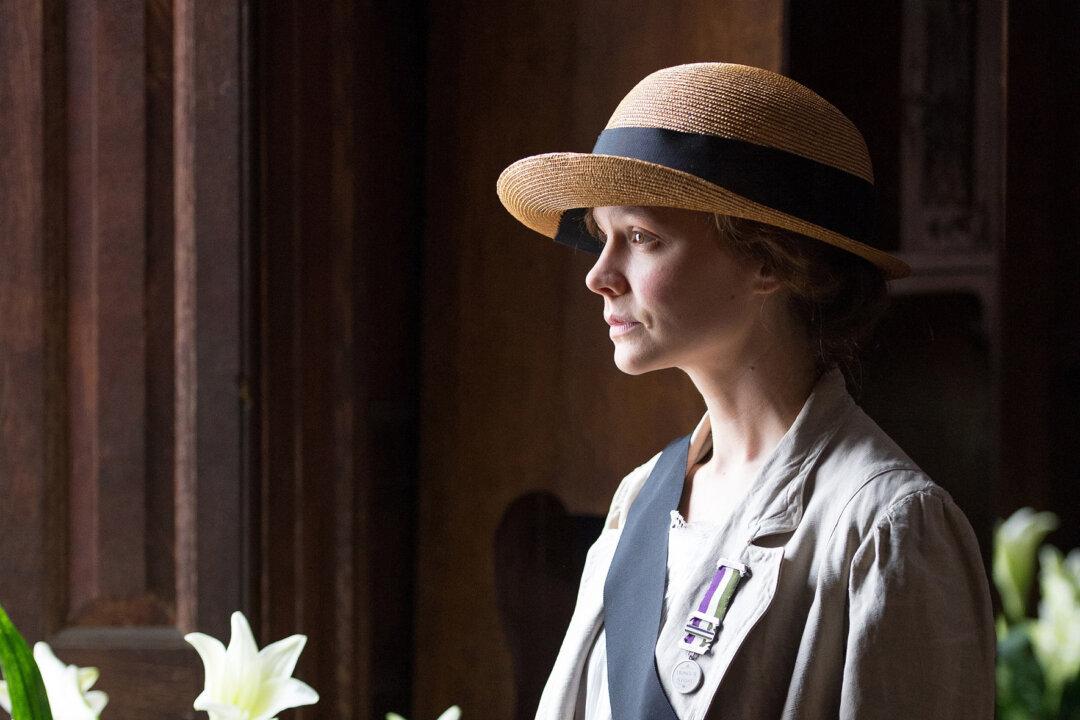Sarah “Brick Lane” Gavron’s resonant tale of the societal hardships placed upon women in the early 1900s focuses on a group of East End Suffragettes, and their Emmeline Pankhurst inspired uprising against the state, all culminating in that infamous Derby Day newsreel from Epsom Races.
It’s one of those films so often dismissed as “worthy”, at times veering into Sunday night television drama. But, largely thanks to an evolutionary piece of acting from Carey Mulligan, it steamrolls to become something so much more important and involving.
We’re dropped into the depressingly bleak world of Maud Watts (Mulligan), a factory laundrette worker. She’s the victim of her boss’s wandering hands, wife to Ben Whishaw’s repressed husband, and mother to a small boy, upon whom she dotes. Ordered to deliver a package after work, she is unwittingly caught up in a window smashing street protest organised by the Suffragettes, one of whom is her co-worker, Violet Miller (the terrific Anne-Marie Duff). Sparked by her daily oppression, a fuse is lit within, one that leads her to become part of one of the most significant political movements in feminist history.
Things start a little shakily, with Abi Morgan’s script reduced to rushed montages and sequences that feel like they’re a sing-song away from being a musical. The overbearing soundtrack doesn’t help, with the score booming ill-fittingly over dramatic proceedings, completely undermining the seriousness of it all.




